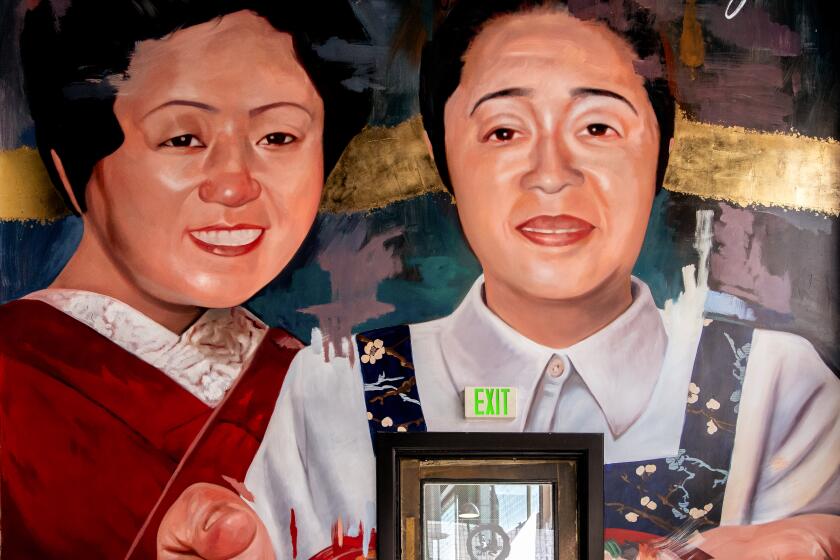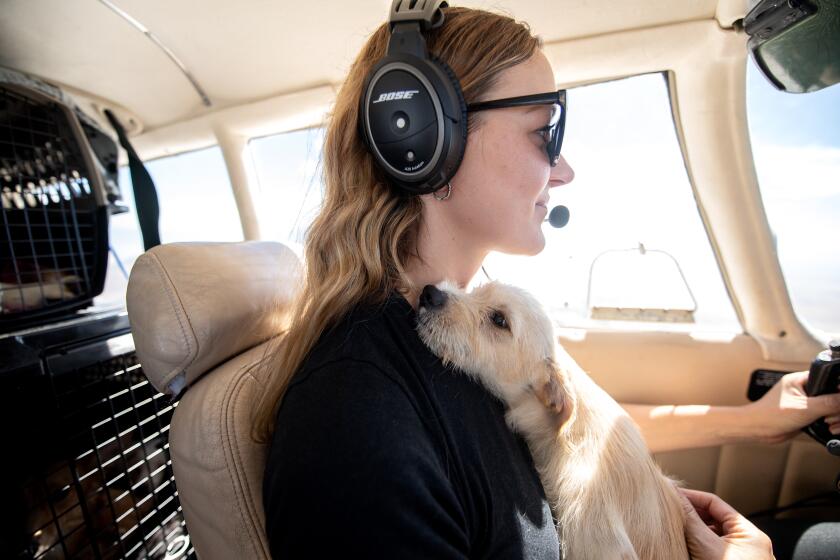Working-class Echo Park residents join forces to battle parking nightmare due to yoga studio
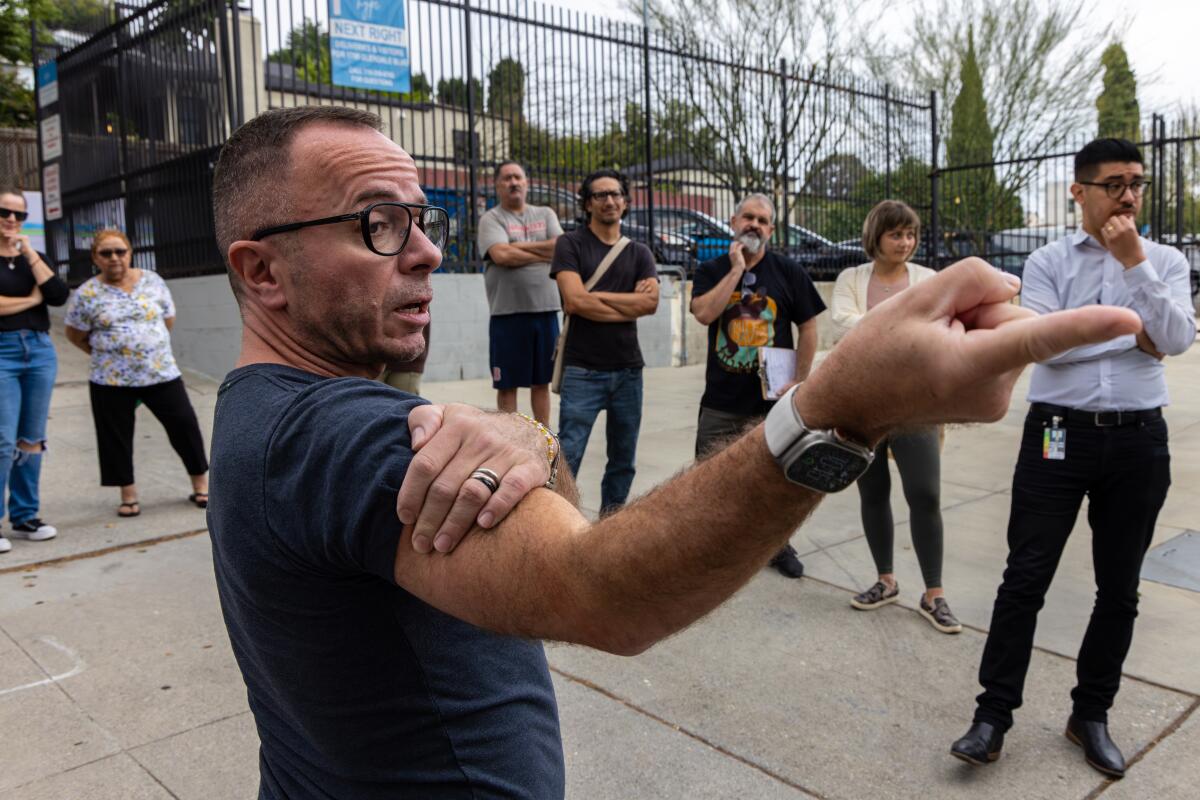
Blanca Rendón, 71, stands outside her Echo Park home of 40 years on Aaron Street and points to the top of the road’s steep dead end.
That’s where the problems will start, she says in Spanish. By midmorning clients of a nearby yoga studio, Modo Yoga, will fill up the business’ parking lot and begin the frantic search for parking spaces on her narrow street.
“And they don’t care, all they care about is that they’re late to their yoga class,” she said.
It’s a daily headache in this working-class neighborhood that results in cars cramming the tree-lined residential road, taking parking spots from locals, blocking driveways and hitting the cars of neighborhood residents. The parking dilemma has been a problem since 2017, when the studio opened its doors.
The yoga studio is on busy Glendale Boulevard, but the entrance to the studio’s parking lot is on Aaron Street and so “lots of cars come in this street looking for parking” and then “we’re left to also wait” for open spots or park on another street and walk, Rendón said.
But she can’t park up the hill, she said, because she and her husband have had knee and hip replacements.
“If someone wants to leave in an emergency, they cannot at all,” she said.
In a dispute with its landlord, Suehiro Cafe opts to plant a new flag in downtown. ‘I still feel like it’s my mother’s restaurant,’ says second-generation owner Kenji Suzuki.
The problem has been the subject of three neighborhood meetings, with residents agreeing to push Los Angeles city officials to impose permit parking requirements to keep the yoga clients from inundating the streets around the studio.
The Canada-based yoga franchise has two yoga rooms at the location that host classes for 33 to 40 students at a time, and the parking lot can fit 34 cars. Both rooms are typically not in use at the same time, but sometimes classes overlap.
Guillaume Brun, executive director of Modo Yoga LA, told The Times he’s aware of the parking problems and has been communicating with his clients and staff about it since he took over last year.
“How do you convince someone to actually become a normal human being and respect a neighborhood and also park your car five minutes away from the studio and walk for the five minutes, right?” Brun said.
Aaron Street is home to a mix of retired and working-class families, a majority of whom are Spanish-speakers, who have banded together to raise their concerns.
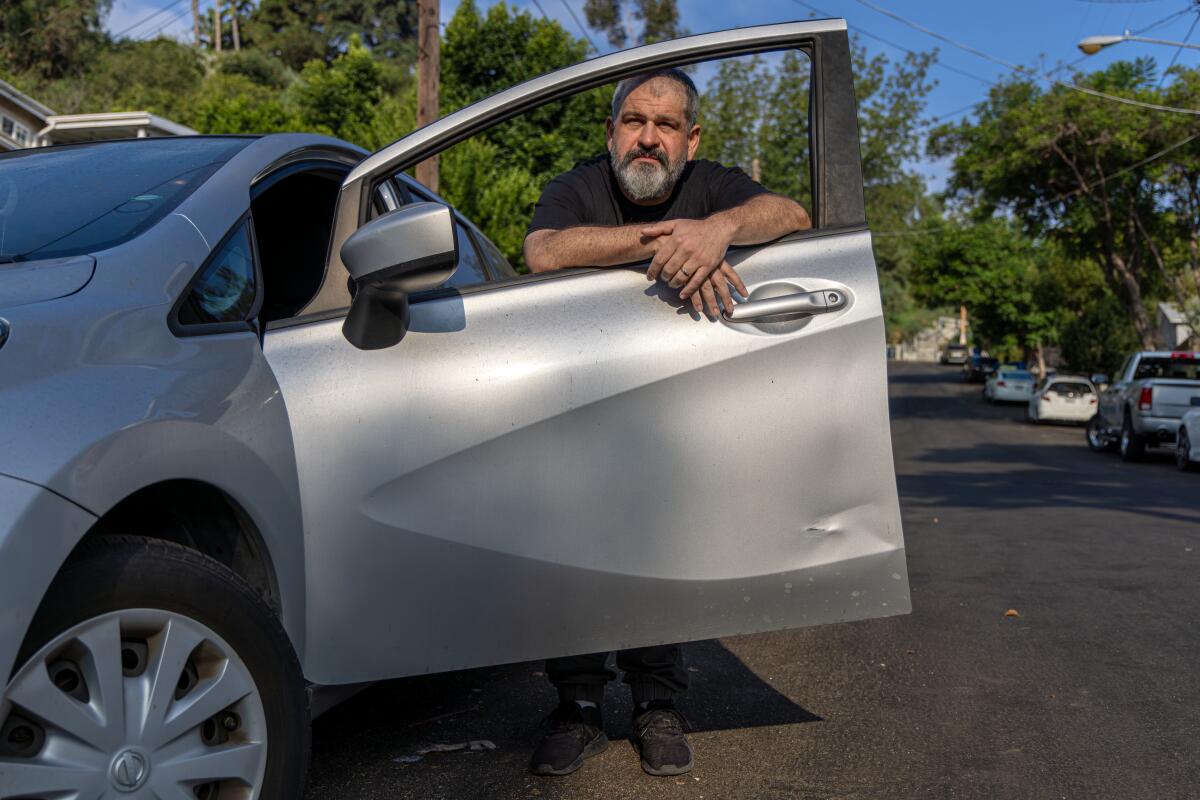
The issue has gotten so bad that Jose Luis Sanchez, 36, said that when he comes home from his construction job in the evening he’s had to sit in his car and wait for a parking spot to open up.
“Sometimes I have to wait for an hour for something to become available,” Sanchez said.
The residents believe the solution to their problems is to impose a permit parking system on the street, banning parking for those without a permit from 8 a.m. to 6 p.m.
Amelia Air’s volunteer pilots fly unwanted dogs from kill shelters in rural areas to urban rescue centers, where they have better chances of finding forever homes.
After three community meetings, the group appointed neighbor Joe Lester, 41, to communicate with the staff of Councilmember Hugo Soto-Martinez, whose district represents the neighborhood, to begin the process, but it’s been slow to start.
During a meeting Thursday that included Soto-Martinez’s staff, Aaron Street residents and Brun, city staff warned that Los Angeles is dealing with “years of backlog” in parking permit requests.
Because the process of imposing a permit process could take several years, Laila Molina, field deputy for Soto-Martinez, said the meeting was held to find a way to address the problem in the short term.
The application process requires a letter of support from the local council office, signatures from at least 75% of residents within the parking zone, “a feasibility assessment, and approval by the Transportation Commission and City Council, and the process can take, on average, two years to complete,” said Colin Sweeney, spokesperson for the Los Angeles Department of Transportation.
The number of applications received for this process fluctuated in the last four years from five to 29 per year, according to the Transportation Department.
The difference between applications received and those completed or pending is usually caused by the failure to gather sufficient resident signatures. Aaron Street neighbors have collected the required number of signatures, but they’ve been waiting on the city’s letter of support for the last six months.
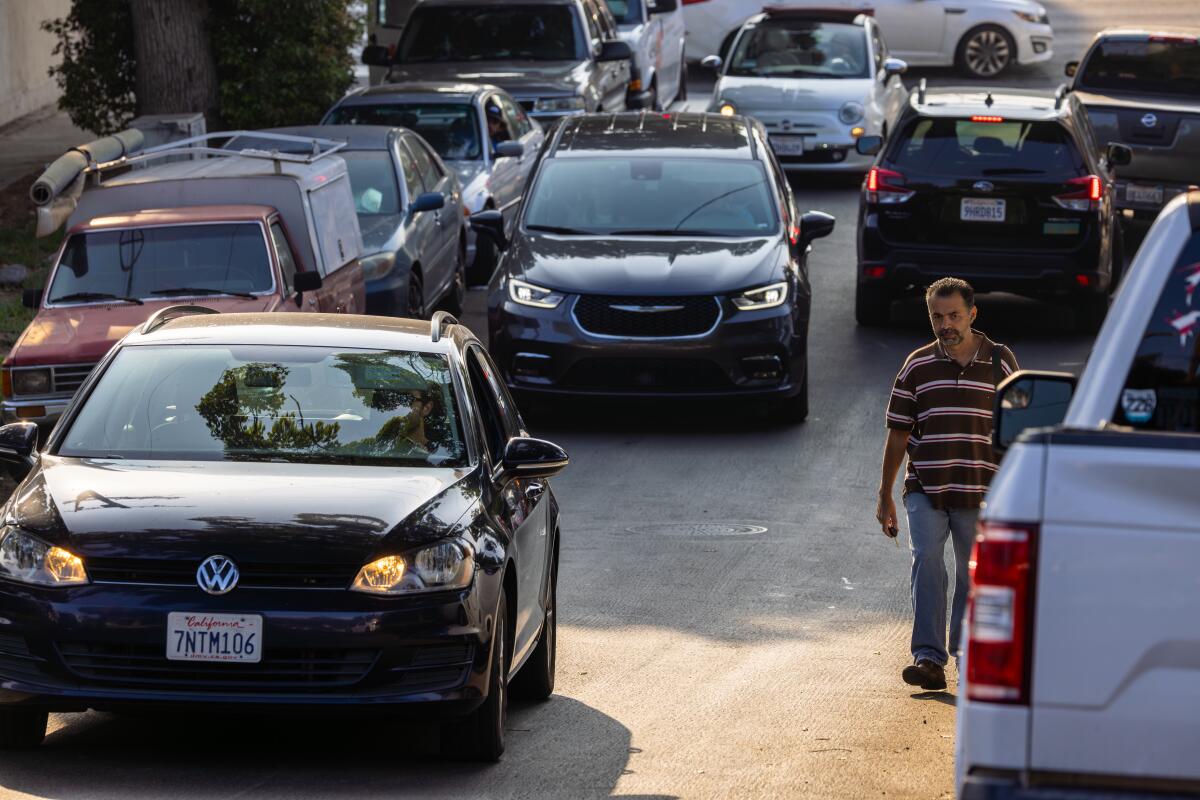
During the latest meeting, the groups who attended separated themselves between English speakers gathering around the city staff and Spanish speakers talking among themselves.
Staff approached the Spanish speakers to talk with them about the long timeline the parking permit process would be, said resident Ruben Flores, 76.
Standing next to the English speakers, Lucia Mendez said in Spanish that she didn’t understand what city officials were saying but her neighbor Raquel Trujillo, 51, would fill her in later.
During the meeting, staff for Soto-Martinez urged Modo Yoga LA to stagger its classes, suggested that the Transportation Department beef up parking enforcement on Aaron Street, and offered to meet with department officials to discuss imposing the parking permit restrictions.
Lester said the short-term solutions are OK, but he would also be happy getting parking permit restrictions on his street, even if it takes several years.
“I’ve been getting my car hit for six years straight so if it takes three years to get the permit, I’m going to do anything to address that solution,” Lester said.
The R&B themed yoga classes might suggest added choreographed routines to newcomers, and while it includes an occasional twerk and body roll, yoga and its meditative elements take precedence.
Trujillo grew up on this street, long before the yoga studio opened its doors.
She said that, for a long time, cars would enter the street to park in the parking lot for the nearby Echo Park Veterinary Hospital parking lot — the entrance is also on Aaron Street.
But Trujillo said she is sure the high traffic volume is caused by people at Modo Yoga because there were no parking problems when the studio closed its doors during the pandemic.
She also has security camera video of a person obstructing her driveway on a day that Trujillo had a doctor’s appointment. Trujillo called Modo Yoga’s front desk to ask that it have the person move the car.
“They said, ‘Sorry, we cannot go in the classroom and interrupt the session,’ ” she said.
Trujillo told Modo Yoga if the person didn’t move the car, she would call the police or the city to have the car impounded.
The person moved their car.
“I don’t want to be disrespectful, and I don’t want to be rude, but this is something that we just cannot deal with anymore,” Trujillo said.
More to Read
Sign up for Essential California
The most important California stories and recommendations in your inbox every morning.
You may occasionally receive promotional content from the Los Angeles Times.
